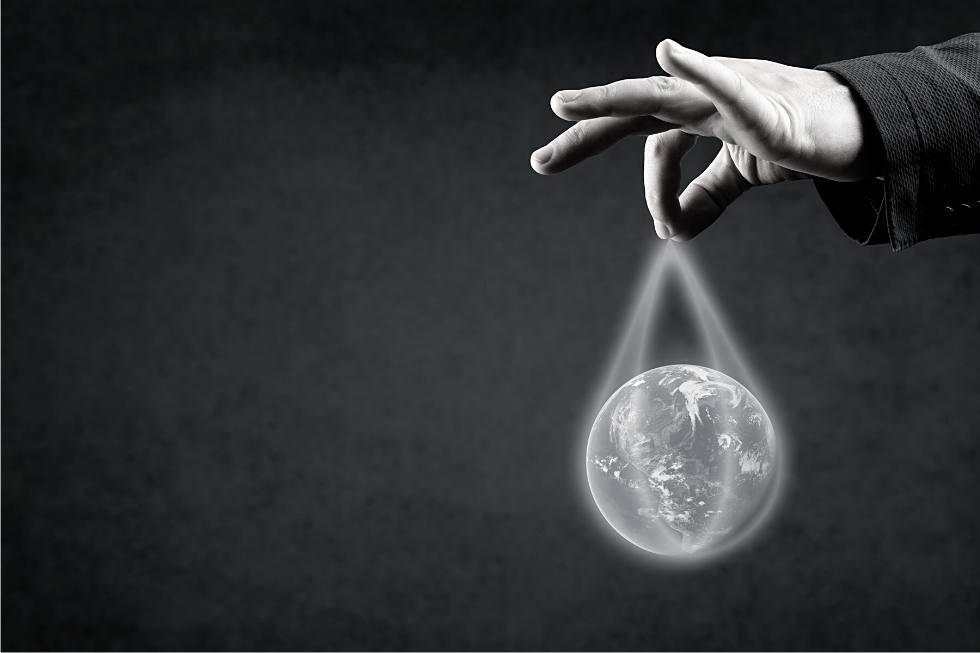On this page

Oligarchs Statistics and Facts in 2023
An oligarchy is a form of government in which a small group of individuals or oligarchs possess political power.
The term “oligarch” derives from the Greek word “oligarkhia,” which refers to “the rule of the few.” Oligarchs typically use financial means, such as contributing lavishly to politicians who rule in the oligarchs’ interests.
Oligarchs may also gain power through their social position/nobility, fame, education, political, religious, or military connections. Oligarchies in which a family reigns typically result in power being passed down from generation to generation. Many modern nations, including Russia, China, and perhaps the United States, could be characterized as oligarchies.
Key Oligarchs Statistics and Facts
This global inequality between the wealthiest individuals and everyone else (often known as the 1% and 99%, respectively) is infuriatingly clear. Most of the wealth in the world is controlled by a tiny number of people known as oligarchs according to oligarchs statistics.
- When used for personal gain, the Greek philosopher Aristotle was the first to use the term oligarchy (oligarchic) to describe rulership by a few individuals.
- The world’s billionaire oligarchs’ net worth rose from less than $1 trillion in 2000 to over $12.7 trillion in 2022.
- Most wealthy oligarchs on the Forbes Top 100 Richest People list (published annually) have come from the United States.
- Following Vladimir Putin’s invasion of Ukraine in 2018, there are now 34 fewer Russian billionaire oligarchs than there was the year before.
- Following the Chinese government’s tightening of tech firms, there will be 87 fewer Chinese billionaire oligarchs in 2022 than in 2017.
- Since the country embraced capitalism in the 1970s, it has been referred to as an oligarchy.
- Since the collapse of the Soviet Union in 1991, Russia has been regarded as an oligarchy.
- Because of the huge wealth inequality and disparity of manifesting money in the United States, it is frequently referred to as an oligarchy.
- The United States of America has the most oligarchs globally, with 735 billionaires worth $4.7 trillion.
- With a combined $2.3 trillion, China has the second most oligarch globally, after Russia (1,865 individuals worth $6.5 billion), according to Forbes magazine.
- Oligarchs’ net worth might vary considerably yearly since the vast majority of their wealth is kept in publicly traded equities and shares.
- Elon Musk, the co-founder and CEO of Tesla, is the world’s wealthiest oligarch right now, with a net worth of $219 billion; he is closely followed by fellow American oligarch Jeff Bezos, founder and executive chair at Amazon, with a net worth of $188 billion.
- Around 2,750 billionaires control over 3.5 % of the globe’s total wealth, even though many countries are regarded as oligarchies, and their oligarchs have more control over federal money.
- The wealthiest 1% of Americans owned 38.5 % of the country’s wealth in the United States.
- In 2022, several nations worldwide imposed harsh economic sanctions on Russian oligarchs as a unilateral action in response to Vladimir Putin’s unlawful invasion of and military conflict in Ukraine.
Types of Oligarchy
In its broadest meaning, Oligarchy refers to any form of government in which a small group of people wields power. It may refer to at least 13 different forms of the “rule of the few.”
An aristocracy is an oligarchy in which the ruling class consists of aristocrats or nobles.
Plutocracy is an oligarchy in which the ruling class consists of extremely wealthy individuals who use their money to shape policy to profit even more.
Are oligarchies good, evil, or neutral?
Oligarchies, in and of themselves, are neither good nor evil. For example, an oligarchy in which the rulers made the same decisions as the general public would govern in parallel to the people’s will. A “good” oligarchy, according to most individuals, governs in parallel to popular will. Nevertheless, many authorities have noticed that in the overwhelming majority of situations in which a few people are given power over a larger group, those few would eventually select to establish policies that benefit themselves at the expense of the general public. In other words, an oligarchy becomes “evil” only when the oligarchs act to restrict or eliminate checks and balances on their power, flout (or ignore) the rule of law, and put individual interests before those of the nation’s people—but they have a long history of doing so.
Oligarchs by Country Statistics
There are many oligarchs operating in numerous countries all around the world.
They have such enormous funds and capabilities that they can directly influence the governments in charge of their nations, giving rise to the term “oligarchy” to describe countries ruled by a few rich people for personal gain.
United States of America
- In the entire world, the United States has the most billionaire oligarchs.
- Historically, the wealthiest oligarch in the world has been an American businessman. Over several decades, prominent figures such as Bill Gates, Donald Trump, and Jeff Bezos have held this title. Although there have been a few years when non-Americans like Vladimir Putin and Abu Bakr al-Baghdadi briefly rose to the top spot on the list of global oligarchs, these periods proved to be exceptions rather than the rule. Whether viewed from a business or political perspective, it is clear that American dominance in wealth is not just a recent phenomenon but has persisted for many years. Whether this pattern will continue in the future remains to be seen, but for now, it seems clear that America remains firmly at the top of the hierarchy of global riches.
- Even though America is still considered a democracy, it is increasingly seen as an oligarchy due to the wealth disparity between its people and its position as the country with the most billionaires and oligarchs.
- Elon Musk (Tesla) is the wealthiest American oligarch, with $219 billion.
- For a long time, Jeff Bezos (Amazon) was the wealthiest American oligarch, and he is now the world’s second-wealthiest oligarch, with a net worth of $171 billion.
- With a net worth of $129 billion, Bill Gates (Microsoft) ranks high on Forbes’ list of wealthiest oligarchs.
- After a terrible year for the firm’s annual report, Mark Zuckerberg (Facebook/Meta) fell off the Forbes Top Ten Billionaires list for the first time since 2016.
China
- China was formerly known as a Communist regime, governed by the masses for the benefit of the masses (though, in reality, this was far from the truth). Today it is considered an oligarchy due to its embrace of capitalism in the 1970s.
- Industry and technology have been outsourced to China by other nations worldwide, much of which is owned by the Chinese government.
- Former CEO and chairman Zhang Yiming of TikTok (ByteDance) is one of China’s wealthiest people, with a net worth of $50 billion.
Russia
- From its creation in 1917 to its collapse in 1991, Russia was (like China) labelled a Communist country. Still, it is now considered an oligarchy due to the evident corruption of its political leadership and reliance on the leadership of the wealthy elite.
- Alisher Usmanov is Russia’s wealthiest oligarch, and he is said to be Vladimir Putin’s “favourite.” He owns large stakes in iron, steel, and telecoms businesses, but his investments in the young firm yielded Facebook for him.
- When Putin became president, he named Brothers Arkady and Boris Rotenberg Director of National Companies for their friendship with him when they were young.
- In 2022, Forbes released its annual list of the world’s wealthiest individuals, and once again, the United States came out on top. With a combined net worth of $2.3 trillion, American billionaires accounted for nearly a quarter of the total wealth on the list. But while the United States may have the most billionaires, it’s not necessarily the most egalitarian country when it comes to wealth distribution. Russia has a lower concentration of wealth at the top than the United States. According to Forbes’ list, there are just two Russian billionaires in the top 100, compared to 27 from the United States. Of course, it’s worth noting that Russia is often criticized for its close ties to Oligarchy, and many of its wealthiest citizens are thought to have made their fortunes through corrupt means. Nevertheless, the data still shows that Russia is not as unequal as some think.
Conclusion
Oligarchs have always had a large amount of the world’s wealth, but their share has increased dramatically in recent years. In 1980, the top 1% of wealthiest people had 44% of the world’s wealth according to oligarchs statistics.
By 2016, that figure had risen to over 50%. Today, the top 1% own more than the rest of us combined. The concentration of wealth at the top is especially pronounced in the United States, where the top 0.1% control as much wealth as the bottom 90%. This tiny group of people exerts enormous power over the rest of us. They buy politicians and influence policy.
They own most of the media and control the narrative.
As long as they keep getting richer, the rest of us will keep getting poorer. And unless we do something to change this system, their grip on power will only get stronger.
Statistics for this article were gathered from the following sources:

Petri Maatta is a mindset coach and neuroscience-focused author with 15 years of experience in personal transformation and success psychology. After seven years of business failures, he discovered the power of manifestation through a Fortune 500 mentor. Now, he shares neuroscience-backed strategies through DreamMaker membership, helping others transform their businesses and lives on their own terms.
Read My Story here.
Share This Story, Choose Your Platform!
You want to manifest a new car, but you’re wondering: Does this really work? Here’s
Many smart individuals are often linked with having a high IQ. However, according to emotional
According to online dating statistics over 90% of people believe in love at first sight,




